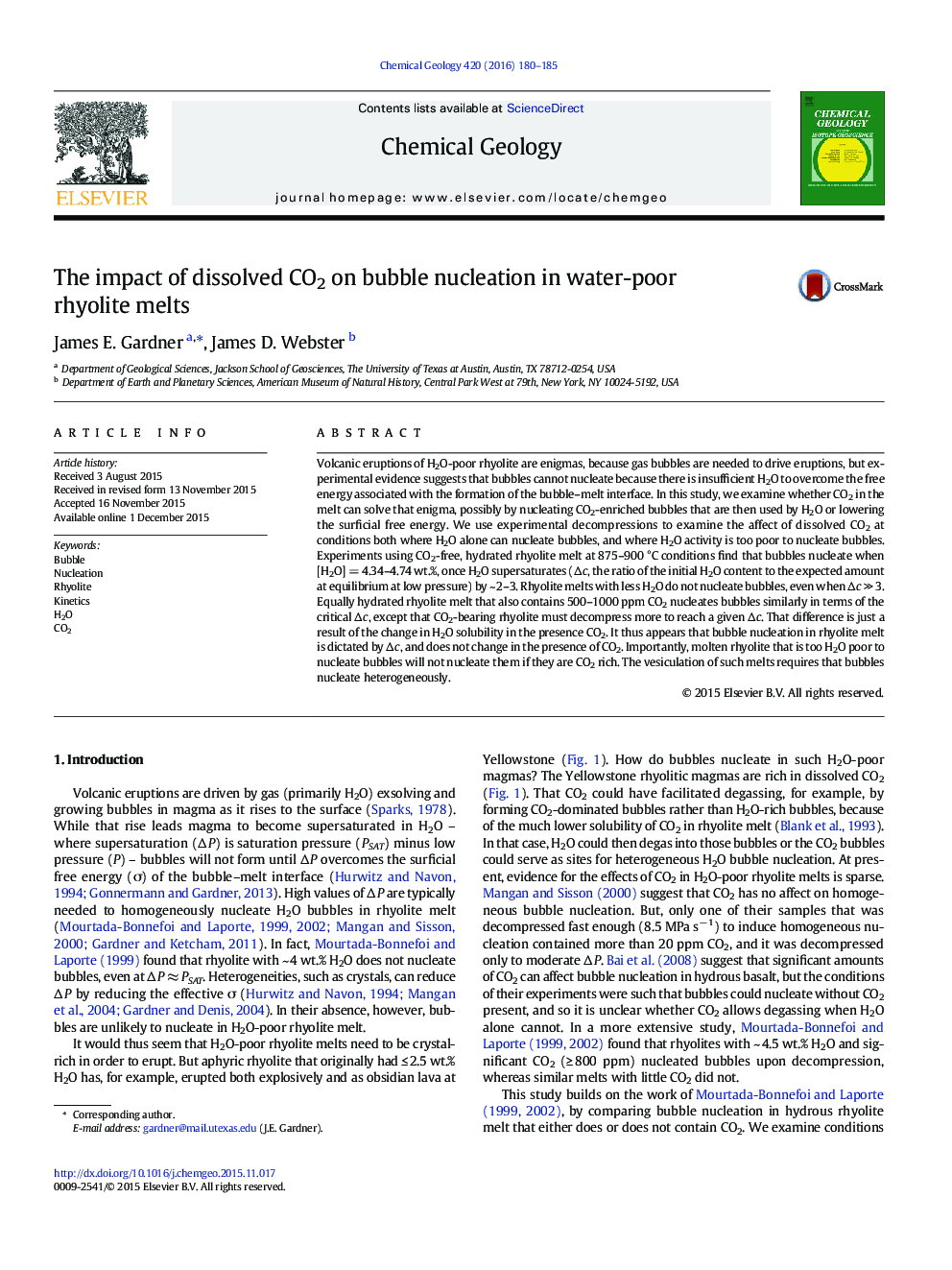| کد مقاله | کد نشریه | سال انتشار | مقاله انگلیسی | نسخه تمام متن |
|---|---|---|---|---|
| 4698359 | 1637554 | 2016 | 6 صفحه PDF | دانلود رایگان |
• Rhyolite melt must have > 4.3 wt.% H2O to nucleate bubbles homogeneously during decompression.
• Rhyolite melt with > 4.3 wt.% H2O and 500–1000 ppm CO2 nucleates bubbles at similar H2O supersaturation as those without CO2.
• Rhyolite melt with < 4.3 wt.% H2O do not nucleate bubbles homogeneously, regardless of any added CO2.
• H2O-poor rhyolite magma must nucleate bubbles heterogeneously rather than homogeneously.
Volcanic eruptions of H2O-poor rhyolite are enigmas, because gas bubbles are needed to drive eruptions, but experimental evidence suggests that bubbles cannot nucleate because there is insufficient H2O to overcome the free energy associated with the formation of the bubble–melt interface. In this study, we examine whether CO2 in the melt can solve that enigma, possibly by nucleating CO2-enriched bubbles that are then used by H2O or lowering the surficial free energy. We use experimental decompressions to examine the affect of dissolved CO2 at conditions both where H2O alone can nucleate bubbles, and where H2O activity is too poor to nucleate bubbles. Experiments using CO2-free, hydrated rhyolite melt at 875–900 °C conditions find that bubbles nucleate when [H2O] = 4.34–4.74 wt.%, once H2O supersaturates (∆ c, the ratio of the initial H2O content to the expected amount at equilibrium at low pressure) by ~ 2–3. Rhyolite melts with less H2O do not nucleate bubbles, even when ∆ c ≫ 3. Equally hydrated rhyolite melt that also contains 500–1000 ppm CO2 nucleates bubbles similarly in terms of the critical ∆ c, except that CO2-bearing rhyolite must decompress more to reach a given ∆ c. That difference is just a result of the change in H2O solubility in the presence CO2. It thus appears that bubble nucleation in rhyolite melt is dictated by ∆ c, and does not change in the presence of CO2. Importantly, molten rhyolite that is too H2O poor to nucleate bubbles will not nucleate them if they are CO2 rich. The vesiculation of such melts requires that bubbles nucleate heterogeneously.
Journal: Chemical Geology - Volume 420, 20 January 2016, Pages 180–185
